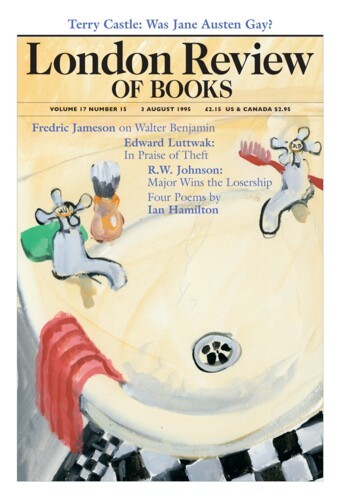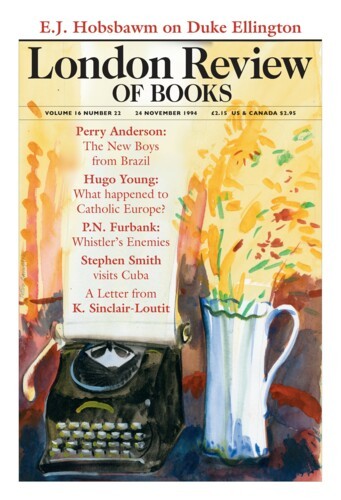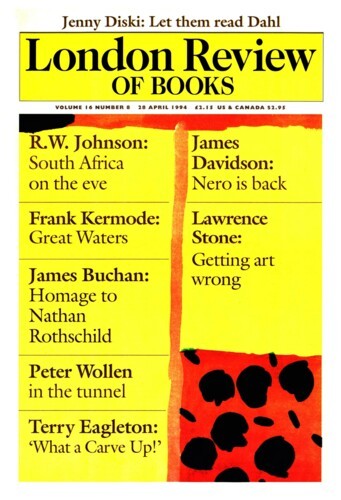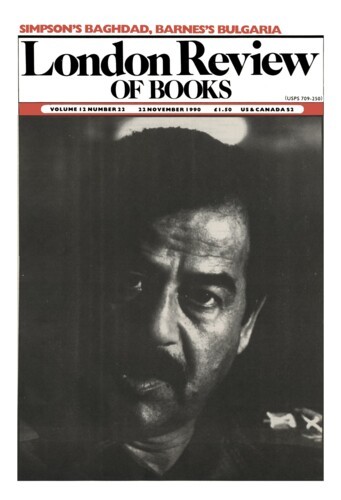What, how often and with whom?
Lawrence Stone, 3 August 1995
In the early Eighties, Western governments, notably those of America, Britain and France, were anxious to assess the probable rate of growth and pathways of infection of Aids. They sponsored extensive sex surveys in order to find out, for example, the number of sexual partners an average male had in his lifetime and how many used safe sex. The British survey was carried out by four women, primarily trained in medical statistics, epidemiology and health care. The American survey was carried out by four men, primarily trained in sociology. The purposes, methods and conclusions of the two surveys are much the same, although the British one is more directly focused on assessing risks of the spread of Aids and asks a rather different set of questions.




